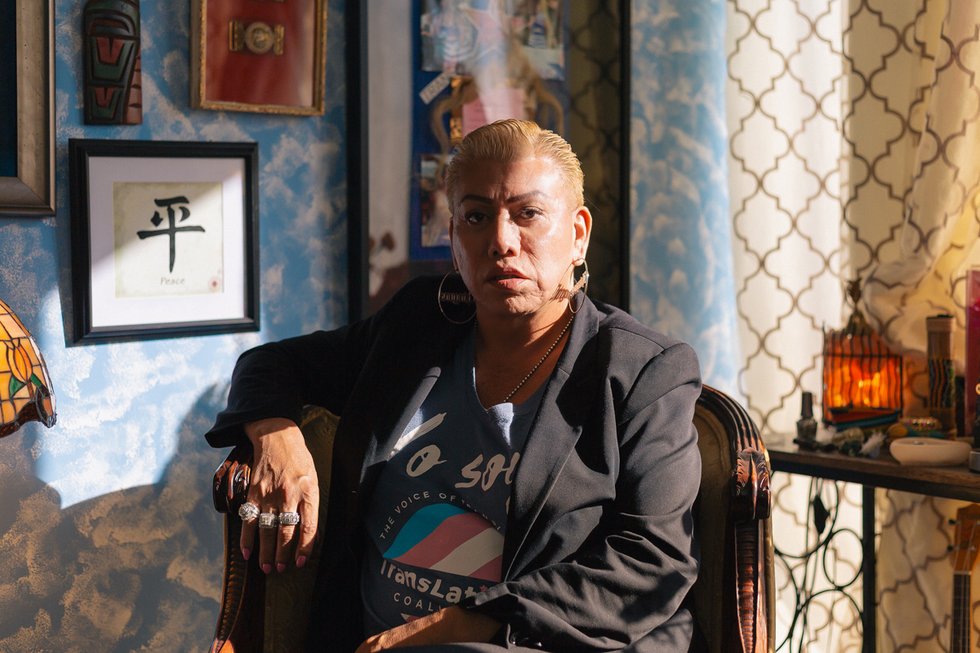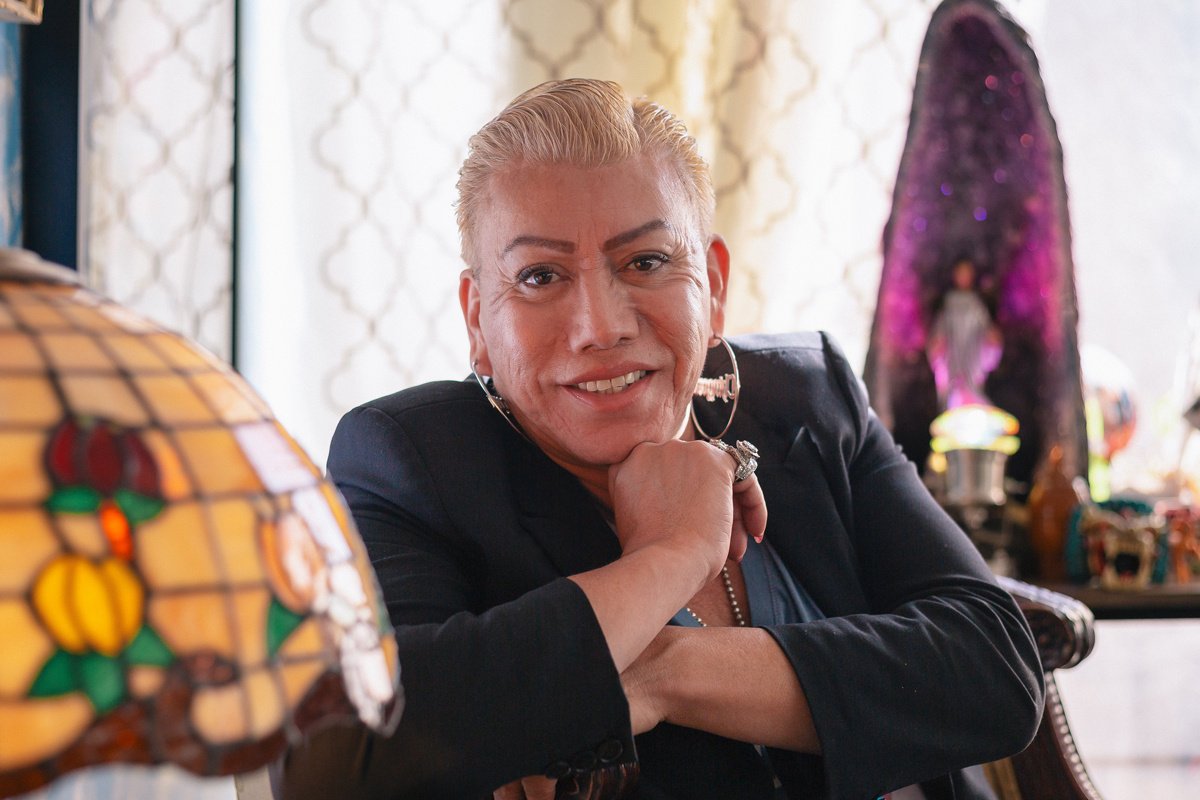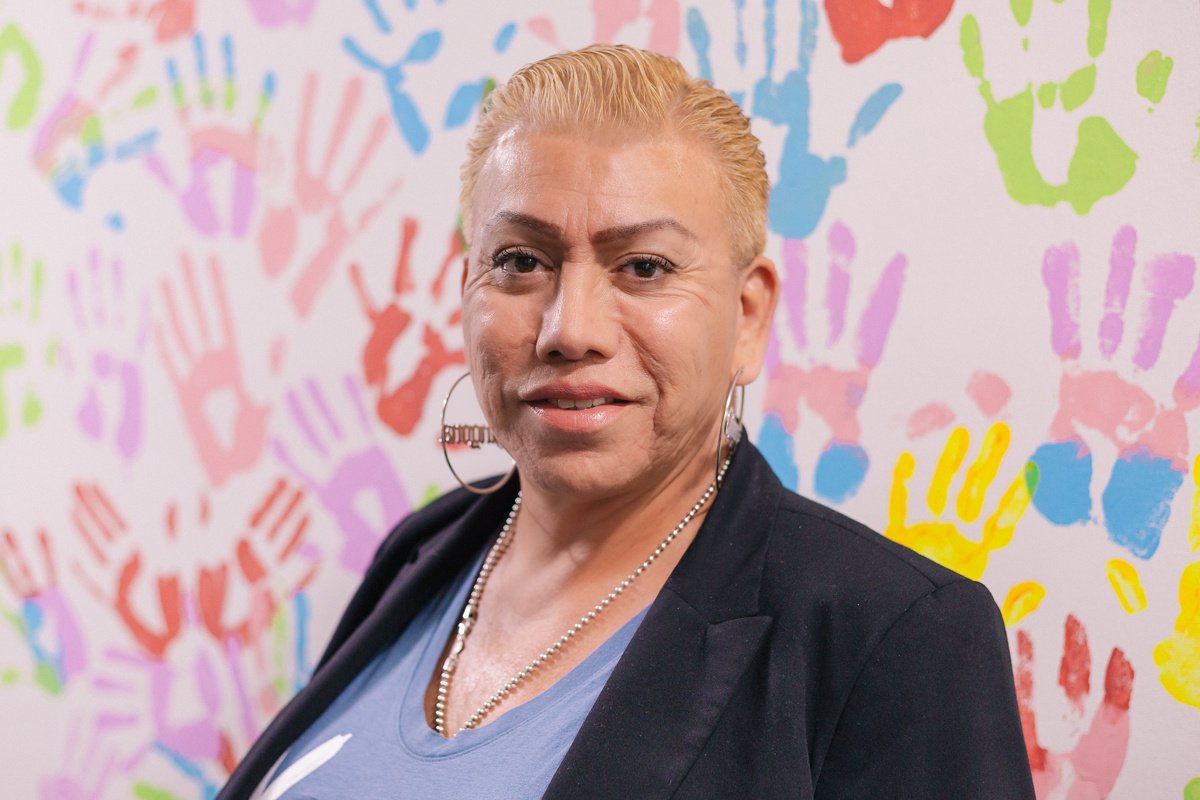What’s work like when you’re undocumented and trans?
Dec 12, 2023 - updated Feb 27, 2024
9 mins


Journalist and translator based in Paris, France.
The United States is seen as a safe haven by many transgender people suffering high levels of violence in their own countries. Yet being transgender in the US isn’t easy either. Some have found it so dangerous that they are trying to move state or even to flee the country. What is happening around them is often not illegal, however, and it is getting worse. The American Civil Liberties Union is tracking 496 anti-LGBTQ+ bills – from refusing to hire gay workers to censoring drag shows to criminalizing trans healthcare – that are creating obstacles around gender and sexuality in all aspects of everyday life. Despite this, for some transgender people experiencing violence in their home countries where they have far fewer civil rights, America offers a beacon of hope, even to those without the appropriate visa.
The number of undocumented trans workers is hard to pin down, but the National Center for Transgender Equality estimates that between 15,000 and 50,000 are trying to make safe, secure lives for themselves in the Land of the Free. Although Amnesty International argues that these trans migrants fall under the category of refugees, many end up stuck in detention centers or unable to find work, making it nearly impossible for them to achieve stability or stand on their own two feet.
To get a clearer picture of what these workers are up against, Welcome To The Jungle spoke with Bamby Salcedo, president and chief executive of the TransLatin@ Coalition, a non-profit organization helping trans immigrant women in the Los Angeles area. Here she talks about a world on the fringes of the legal labor market.
Undocumented workers often live in the shadows, and a lot of trans and gender non-conforming people have to hide who they are to survive. Can you talk a little bit about the struggle of having to do both?
Of course. I think it’s important for us to understand the specific needs and issues of transgender and intersex people who are migrants in a very unique and different way. And I think it’s important to recognize where the root cause of things comes from. For instance, we generated a report in 2012 specifically to highlight the needs and issues of trans Latina immigrant women. And it all starts with the reasons why we have to flee the countries that we are from.
We leave our home countries primarily because of the violence and discrimination that we experience. Many of us come from what are considered third-world countries, right? So if there are no resources for the general population, obviously, there are much fewer resources to support trans people and their livelihood. And that’s coupled with the violence around this mentality of who we are as people. In other words, we’re disposable, we’re not worth existing, we’re not worthy of being who we are. You know, the dominant religion of Latin American countries is the Catholic Church. And the Catholic Church has been very oppressive towards us. That has influenced the way our families think and act, and react. And so what happens to many of us is that we are thrown to the streets by our families. We are forced to engage in the street economy, particularly sex work, as a means to survive.
So many of us think that by coming to this country, we’re going to find a better quality of life. Many of us come seeking the American dream – because that’s how it’s sold. But the reality is, for trans Latinas, we come to this country to find the American nightmare. We are fleeing our countries to save our lives, then we arrive and many of us are detained, so that’s our welcoming to this country. And once we’re in immigration detention, we’re not only caged but we’re discriminated against, we’re denied healthcare services – especially those who are HIV positive. There have been cases of trans women who have died in what we call the “ICE boxes” [Immigration and Customs Enforcement holding places.] [Where they have been] denied their HIV medication and essentially left to die. The first documented case, back in 2007, was Victoria Arellano, and she was young. She was 23. So that’s our introduction to the United States.
Another thing happening now, because of the advocacy of our coalition and other organizations, is these women are getting out of immigration detention — but they have cases pending in courts, and they have to acclimate themselves to a whole new place that they don’t know, not knowing or understanding the language, and in many cases not having any type of documentation. Not even having the ability to have a Social Security number or any type of identification for them to be able to be employed. And so the system, once again, really pushes trans Latinas specifically into the margins, forcing them to engage in sex work as a means to survive. And that contributes to the recidivism of being re-incarcerated, ultimately going back to immigration detention, and oftentimes being sent back to their countries — essentially sent back to their death. There are cases documented that trans women who have been deported – particularly to Central and South America and Mexico – have been killed after they have been sent back.
Those who are lucky enough to find employment under the table are exploited, constantly harassed, constantly discriminated against. And for many trans women, they don’t have a choice but to take all of that, despite the fact that there are laws in place that protect employees.
What kind of laws do you mean?
There are laws that protect employees from being exploited in general. Like you’re supposed to get paid overtime, for instance, right? In California, these also apply to undocumented people.
A lot of immigrants go to the US looking for work opportunities, but it seems that many trans people migrate to the US for the opportunity to be themselves. Have you met people who had good jobs back where they came from but moved to the US so that they could be openly trans?
We have someone doing an internship with us right now who came from Colombia. She studied law in Colombia, got her degree, and is essentially a lawyer. Basically, she just couldn’t do her job as a trans woman. So she had to flee her country. So she came here, found us, and has been with us for about six months.
Can you tell me about the Translatin@ Coalition’s economic and workforce development program?
Workforce development has been at the core of the work that we do. We started the service provision part of our organization when we got our first official grant in 2016, and we recently got a community grant from Congress member Jimmy Gomez for $750,000 to link people to employment.
Essentially, we assess people just to see where they are. If work is what they need first, we help them with that. But we also assess what other needs they may have that prevent them from accessing employment. For instance, if somebody says, “I want to work, but I don’t have a place to live,” then the first thing we need to do is address that living situation.
For employment, we work with individual needs, coach them, help build their resumé, and things like that. We’ve incorporated opportunities here in the coalition so they can get work experience. And we have computers where people can learn how to type, or even how to navigate the internet or how to write a letter. We do a lot of leadership development, teaching about how the government works and how to do public speaking, so they can go and speak in front of the city council or a board of supervisors and express their needs. So we do a bunch of different things that empower a community.
We also work with employers to understand the law and not discriminate against trans people, and we train them in how to create a welcoming work environment that is able to address the needs trans people may have. For instance, specific health care: Some of us may need hormonal treatment to be part of our care or perhaps some surgeries. So it’s about: how do we work with employers to understand these are important things for their employees who may be trans or gender non-conforming? How do we work with HR departments and other places that can help them go through that process?
For decades in the US, queer workers have ended up disproportionately working in certain industries. Aside from the vicious cycle of sex work, are there certain sectors where trans immigrants tend to congregate?
We have many aspirations to be integrated into the tapestry of our society. But, you know, for trans immigrants, particularly trans women who may not have the ability to speak the language, there [is a limit to the] things they could do. For the most part, trans people who are migrants get employment in the service industry. For instance, some people find employment in a restaurant or cutting hair or [in] the beauty industry. Some do performances, like impersonations.
Are there any jobs that act like safe spaces? I know some trans Americans tend to become truckers as they feel it’s an industry where they can be themselves.
If there are, there are not many. One big limitation for trans immigrants specifically is the language barrier. I’m glad you mentioned trans people as truckers. I’m assuming you need to be certified and, for us, if we don’t know how to fill out the application or pass a test in English, we can’t get that job. But like I said, many of us have aspirations. Some people want to go to school and learn English, and maybe get a degree, maybe further whatever studies they’d done in their country. But there are very few places that are safe, or that trans women have access to.
In the economic and workforce section of your trans policy agenda, it says you’re fighting against the requirement for transgender women to register with Selective Service in order to qualify for workforce development services. Can you tell me a bit about this?
When you turn 18, males are required to register to be enlisted for the army, just in case they get called for a draft. This is called Selective Service. Many trans women — particularly trans women of color, not just Latinas — transition earlier than 18. And many of us are [working] in the streets as a means to survive, even right when we’re 18. And so many of us did not register. So many of us haven’t had the opportunity to change our names legally. Even though our appearance may be who we are, our documentation may say differently.
So when we try to access workforce centers and present our legal documentation, it has our birth name and everything else. In many places, like here in California, people are able to change their gender on their IDs, but many of us haven’t had the opportunity to do that. Many immigrants do not even have documents from their home countries, so we have to support them to go through that process first before we can help them to try to obtain their other US documents. So when we’re presenting documents, if there is an M for male on your ID, they’re automatically asked if they’re enrolled in Selective Service. And if they’re not, then automatically they’re disqualified from having access to workforce development services. So that’s one of the challenges for us.
What kind of policies would help trans immigrant workers?
I would say the first policy that needs to change is the immigration policy, particularly around the individuals who are getting released from immigration detention. I think they could incorporate an early start program, so if you’re about to be released you have some resources that can help you start right, so you don’t have to end up on the streets. And then change the stuff like Selective Service. There has to be some type of registry that talks about who we are as people. You know, perhaps setting out another box.
Because ICE releases them without contacting organizations or people to supervise them? They just let them go?
That’s pretty much how it is. Some people are released literally in paper jumpsuits. So that’s why it’s important that we are connected with our community in immigration detention so that we can support them in that way. So we can learn what their specific needs are, so we can pick them up when they come out and try to connect them to support services to minimize all the craziness.
What are some things employers can do to be more inclusive of trans immigrants?
The most important thing they can do is not to violate the law. Not violate people’s rights, particularly those who are trans and immigrants and have language barriers. Trans people are already constantly harassed in their workplace, and when it comes to trans Latina immigrants, there are added issues such as language barriers and immigration status. And so the harassment increases.
A lot of employers do what I call “invisible discrimination,” which is the discrimination they do in practice but is hard for trans people to document. For instance, let’s say someone goes through the hiring process and everything is great. It seems like she’s a good fit, the company says she’s going to be hired. But she still has her legal name on her ID and when she presents her paperwork, she’s told, “Oh, something happened. We’ll call you back.” And then she’s never called again. So they’re not telling you that they’re discriminating against you because of who you are, but in practice they are.
We don’t want to encourage people to violate the law in terms of hiring undocumented trans Latinas. But I think there are definitely opportunities that could be made. For example, it depends on the area, but in LA we can support people to register themselves as street vendors. The first thing people can do is to learn who we are as people. And from there contact organizations like ours, so we can support and make those connections.
We do create a great workforce, it’s just that society in general has denied opportunities to us. But when we are given an opportunity, we get to blossom and develop and just be the amazing people that we are. And so I would tell employers to be intentional and understand that if you want to be part of the change, you need to create that change. And if you don’t have the power to employ people, then do what is just and what is right. Support trans people and trans migrants.
Paolo Riveros for Welcome to the Jungle
Follow Welcome to the Jungle on Facebook, LinkedIn, and Instagram to get our latest articles every day, and don’t forget to subscribe to our newsletter!

More inspiration: DEI

Sh*t’s broken—Here’s how we fix work for good
Built by and for a narrow few, our workplace systems are in need of a revolution.
Dec 23, 2024

What Kamala Harris’s legacy means for the future of female leadership
The US presidential elections may not have yielded triumph, but can we still count a victory for women in leadership?
Nov 06, 2024

Leadership skills: Showing confidence at work without being labeled as arrogant
While confidence is crucial, women are frequently criticized for it, often being labeled as arrogant when they display assertiveness.
Oct 22, 2024

Pathways to success: Career resources for Indigenous job hunters
Your culture is your strength! Learn how to leverage your identity to stand out in the job market, while also building a career
Oct 14, 2024

Age does matter, at work and in the White House
What we've learned from the 2024 presidential elections about aging at work.
Sep 09, 2024
The newsletter that does the job
Want to keep up with the latest articles? Twice a week you can receive stories, jobs, and tips in your inbox.

Looking for your next job?
Over 200,000 people have found a job with Welcome to the Jungle.
Explore jobs

